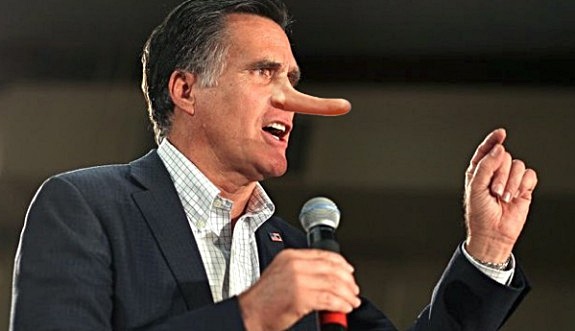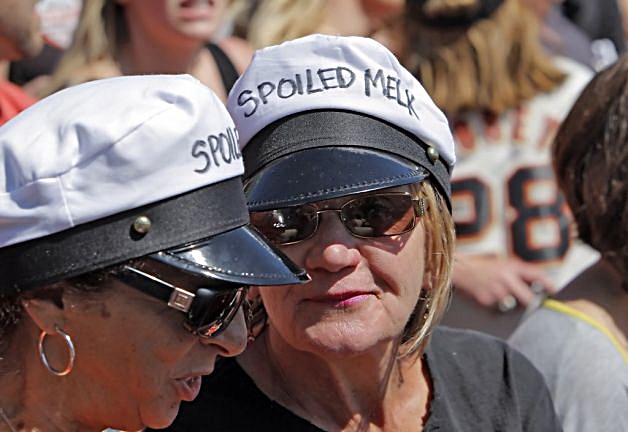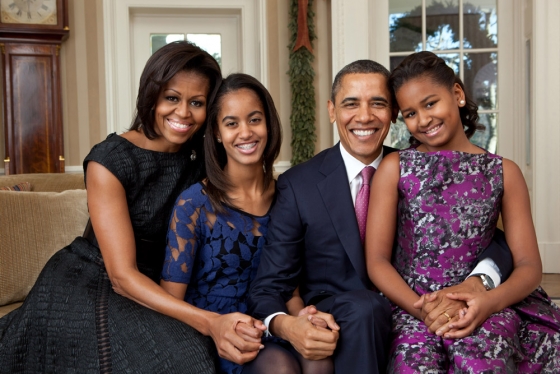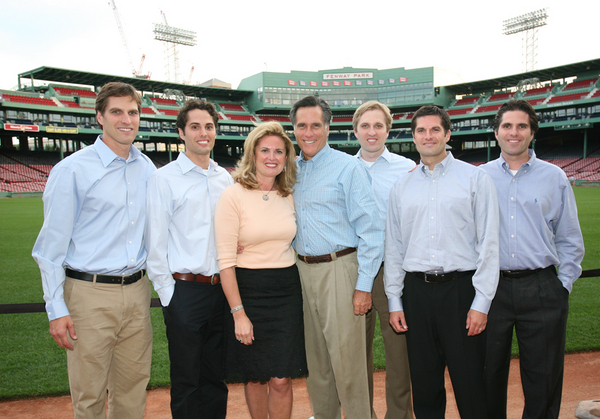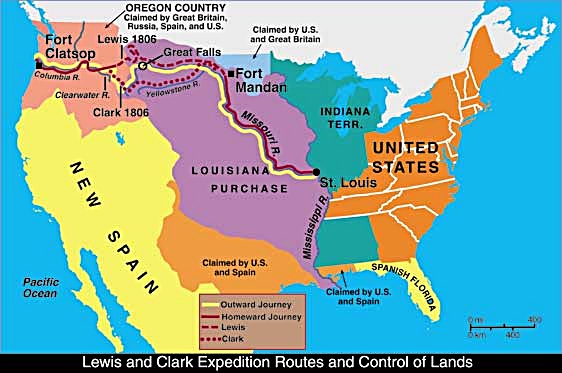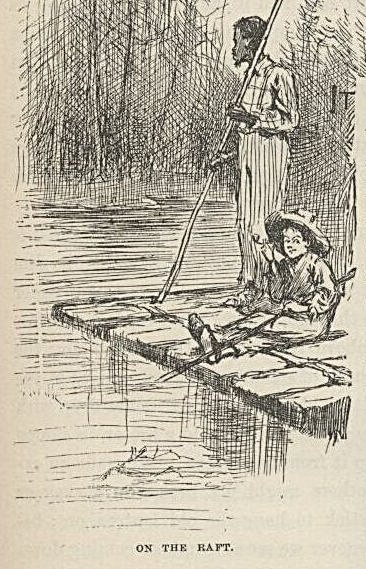Take a Sad Song and Make it Better:Messing Around with National Anthems
 Sunday, August 26, 2012 at 12:23PM
Sunday, August 26, 2012 at 12:23PM The US has a horrible national anthem, “The Star Spangled Banner.” It’s unsingable (an octave and a half) and militaristic (“bombs bursting in air.”) And because it is sung before every baseball game, most us think the last line is “”O’er the land of the free and the home of the brave. Play ball!” We sometimes call it “The Star Spangled Banana.”
So I was surprised how much I enjoyed the awards ceremonies at the Olympics, and especially the moment when the anthem of the gold medalist’s nation was played. Maybe because I liked hearing all those OTHER national tunes at a sporting event. And because the presence of these inspiring and happy athletes somehow ennobled those often sappy or militaristic melodies.
Why do we hear national anthems at sporting events and nowhere else? Are these our only chances publicly to praise our nation? And is there something inherently patriotic about sporting events - I thought they were just good fun and big business.
 Irving BerlinIt’s been a long tradition at baseball games to sing “Take Me Out to the Ballgame,” during the seventh inning stretch, a happy song about peanuts and rooting for the home team. But ever since 9/11 it has become de rigeur instead to sing “God Bless America,” Irving Berlin’s paean to God’s apparent affection for “my home sweet home.” It’s a bit more singable, but just as jingoistic and self satisfied as the national anthem. So now we have to hear TWO bad nationalistic songs every ball game.
Irving BerlinIt’s been a long tradition at baseball games to sing “Take Me Out to the Ballgame,” during the seventh inning stretch, a happy song about peanuts and rooting for the home team. But ever since 9/11 it has become de rigeur instead to sing “God Bless America,” Irving Berlin’s paean to God’s apparent affection for “my home sweet home.” It’s a bit more singable, but just as jingoistic and self satisfied as the national anthem. So now we have to hear TWO bad nationalistic songs every ball game.
Many have said we need a different national anthem. Two favorites, both very singable and sweet, are “O Beautiful for Spacious Skies,” and “This Land is Your Land.” Both celebrate America’s beauty (redwood forest, sea to shining sea.) And both, in later verses, are surprisingly political and critical of our nation.
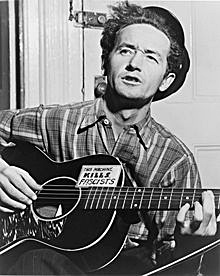 Woody GuthrieWe’d expect “This Land” to be radical in outlook; it was written by activist Woody Guthrie, whose 100th birthday is being celebrated this month. Indeed he is said to have written it in response and critique of “God Bless America” which he said was unrealistic and complacent. Its last two verses (rarely sung) are:
Woody GuthrieWe’d expect “This Land” to be radical in outlook; it was written by activist Woody Guthrie, whose 100th birthday is being celebrated this month. Indeed he is said to have written it in response and critique of “God Bless America” which he said was unrealistic and complacent. Its last two verses (rarely sung) are:
As I was walkin' - I saw a sign there
And the sign said - no tresspassin'
But on the other side...it didn't say nothin!
Now that side was made for you and me!
In the squares of the city -
In the shadow of the steeple
Near the relief office - I see my people
And some are grumblin' and some are wonderin'
If this land's still made for you and me.
“O Beautiful for Spacious Skies,” written 50 years earlier by a Wellesley College professor after a western trip, includes a verse criticizing the selfish robber barons of her day:
O beautiful for heroes prov'd
In liberating strife,
Who more than self their country lov'd,
And mercy more than life.
America! America!
May God thy gold refine
Till all success be nobleness,
And ev'ry gain divine.
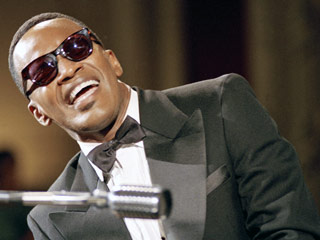 Ray CharlesBut that verse is hardly ever sung either. Except by Ray Charles.
Ray CharlesBut that verse is hardly ever sung either. Except by Ray Charles.
Charles, and several other American artist of color have taken this dreary, nationalistic, exclusive songs, these sad songs, and made them better. How? By singing those more honest political verses. By singing them in iconic places. By jazzing them up and making them funkier.
Ray Charles’ version of “O Beautiful for Spacious Skies” is our most popular version, and amazingly when he sang it he BEGAN with this very third verse about American greed and selfishness, rather than the safe “amber waves of grain” of the first verse. Even more amazingly, Charles was often invited to sing it at public religious events like the Superbowl and famously at the baseball World Series right after after 9/11, third verse first. While many Americans seem to believe that a rich person is a better person, and would be a good president (viz. Romney backers), this verse says; don’t call these robber barons “heroes.”
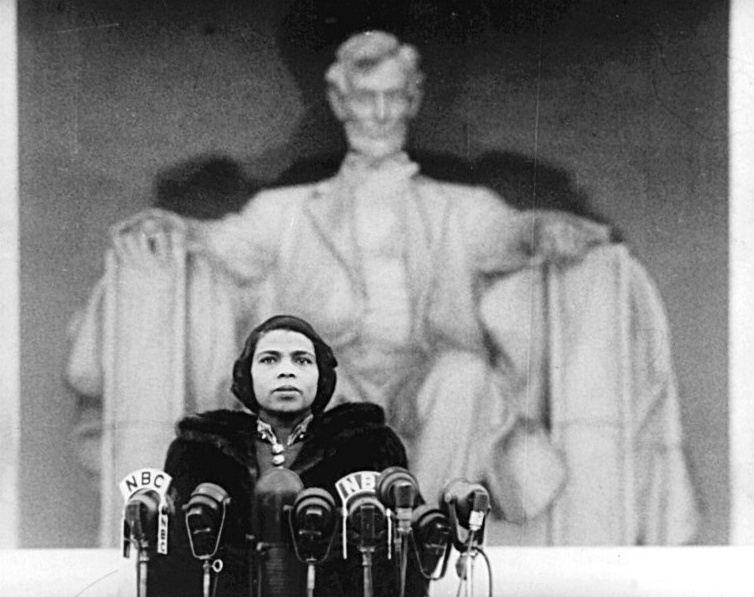 Marian AndersonIn 1939, when The Daughters of the American Revolution barred African American singer Marian Anderson, because of her race, from sing at their Constitutional Hall, she opened her public concert on the steps of of the Lincoln Memorial with "My Country 'Tis of Thee," another patriotic favorite. She made it her song, and better.
Marian AndersonIn 1939, when The Daughters of the American Revolution barred African American singer Marian Anderson, because of her race, from sing at their Constitutional Hall, she opened her public concert on the steps of of the Lincoln Memorial with "My Country 'Tis of Thee," another patriotic favorite. She made it her song, and better.
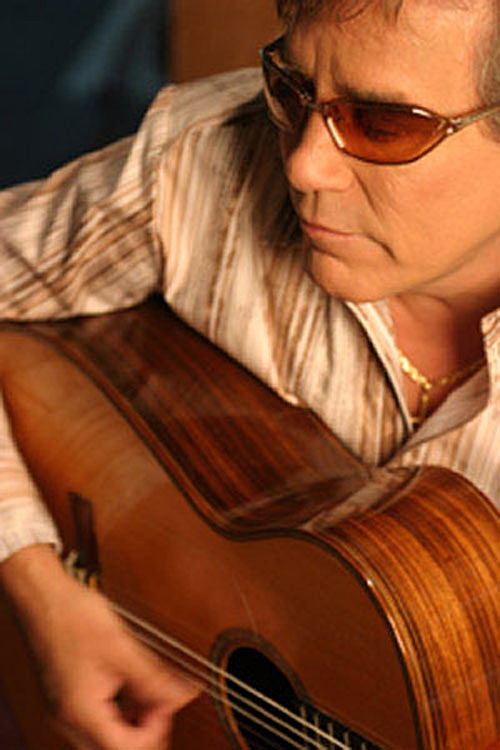 Jose FelicianoAnd Jose Feliciano, great Puerto Rican guitarist, shocked and angered Detroit baseball fans in 1968 for being the first musician to perform the national anthem in a different style, a funky Latin beat. He took that sad song and made it funkier. People called him a traitor and radio stations refused to play his music for several years. But the doors were opened for new interpretations. Who can forget Jimi Hendrix's version at Woodstock? Now that's a better song!
Jose FelicianoAnd Jose Feliciano, great Puerto Rican guitarist, shocked and angered Detroit baseball fans in 1968 for being the first musician to perform the national anthem in a different style, a funky Latin beat. He took that sad song and made it funkier. People called him a traitor and radio stations refused to play his music for several years. But the doors were opened for new interpretations. Who can forget Jimi Hendrix's version at Woodstock? Now that's a better song!
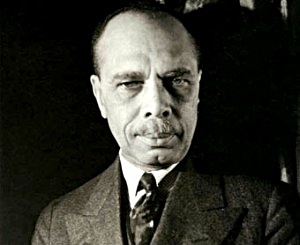 James Welden JohnsonBut my favorite candidate for a better national anthem is the “Negro National Anthem.” Written by African American poet James Welden Johnson, it was first performed in 1900 at a Lincoln’s birthday celebration by 500 fifth grade school children at an assembly in honor of guest Booker T. Washington. (How cool would it have been to witness that?)
James Welden JohnsonBut my favorite candidate for a better national anthem is the “Negro National Anthem.” Written by African American poet James Welden Johnson, it was first performed in 1900 at a Lincoln’s birthday celebration by 500 fifth grade school children at an assembly in honor of guest Booker T. Washington. (How cool would it have been to witness that?)
I first learned this song, not at a ball game, but in church. It’s in many hymnals. In a large interracial gathering it is especially wonderful to sing; African Americans know it by heart and sing it really fast. Here’s a moving version of it sung by the choir of Grace Baptist Church, Washington DC at one of the inaugural balls after Obama’s swearing in.
But would its words speak for all Americans? You decide:
Lift every voice and sing, till earth and heav'n ring,
Ring with the harmonies of liberty;
Let our rejoicing rise, high as the list’ning skies,
Let it resound loud as the rolling sea.
Sing a song full of the faith
that the dark past has taught us,
Sing a song full of the hope
that the present has brought us;
Facing the rising sun of our new day begun,
Let us march on till victory is won.
Stony the road we trod, bitter the chastening rod,
Felt in the days when hope unborn had died.
Yet with a steady beat, have not our weary feet
Come to the place for which our fathers sighed.
We have come over a way that with tears has been watered;
We have come treading a path through the blood of the slaughtered;
Out of the gloomy past till now we stand at last,
Where the white gleam of our bright star is cast.
God of our weary years, God of our silent tears,
Thou who has brought us thus far on the way.
Thou who has by thy might led us into the light,
Keep us forever on the path we pray.
Lest our feet stray from the places oh God where we met thee;
Lest our heart, drunk with the wine of the world, we forget thee.
Shadowed beneath thy hand, may we forever stand
True to our God, true to our native land.
Copyright © 2012 Deborah Streeter



